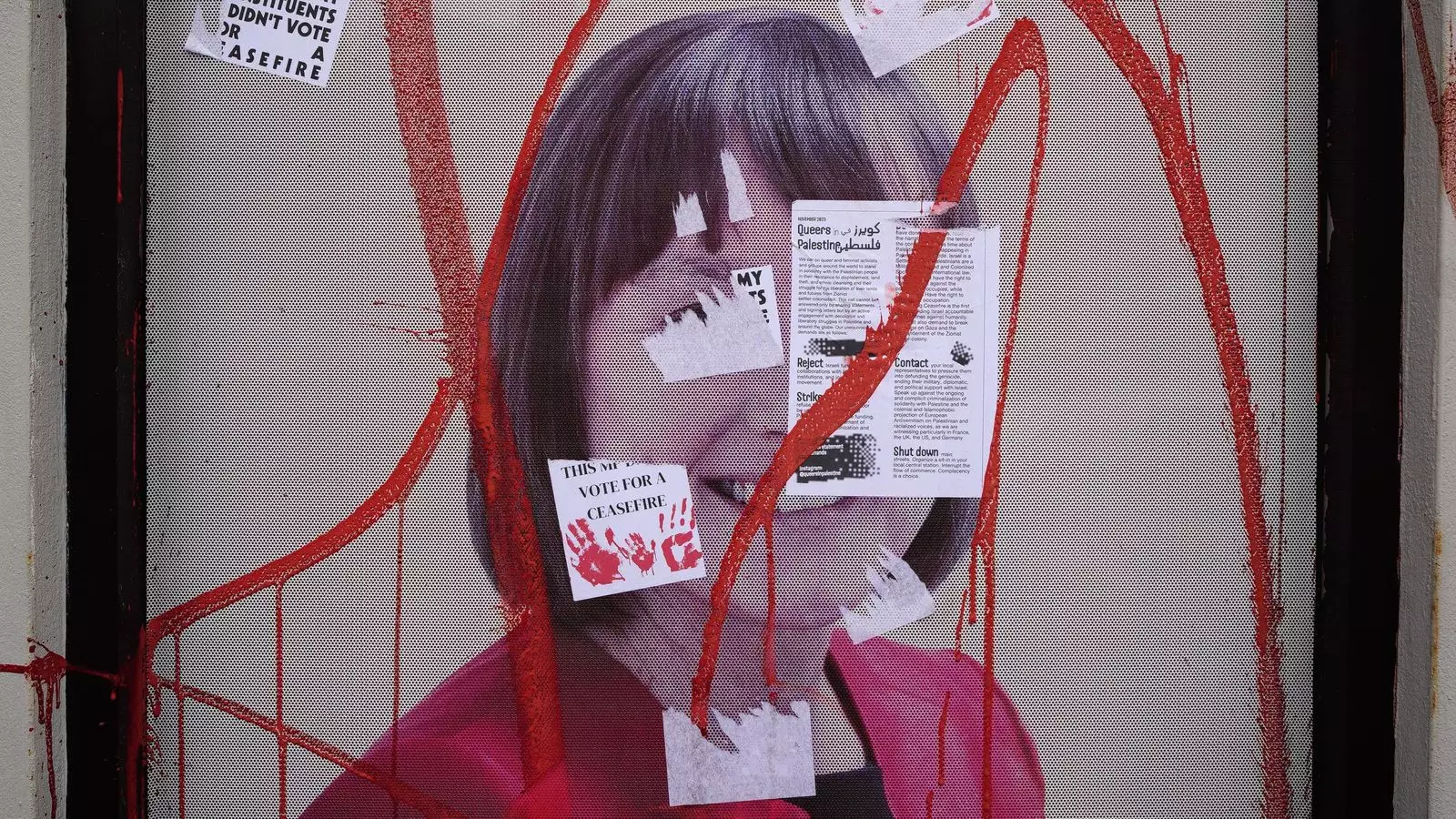The ongoing Israel-Hamas war has exposed deep divisions within the Labour Party. While some MPs have called for an immediate ceasefire, the party leadership has advocated for “humanitarian pauses” to provide aid to Gaza. This divide reached a boiling point when 56 MPs, including eight frontbenchers, rebelled against the party’s position and supported an SNP amendment calling for an immediate ceasefire. This rebellion has caused tensions and unease within the party.
In the aftermath of the parliamentary vote, some Labour MPs have faced aggressive protests at their constituency offices for not backing calls for a ceasefire. Shadow Welsh secretary Jo Stevens had her office in Cardiff vandalized with the word “murderer” and covered with accusatory posters. Similarly, a large group of protesters gathered outside Rushanara Ali’s office in Bethnal Green. These protests have escalated to the point where MPs have received death threats and had their home addresses exposed online.
Labour’s shadow chancellor Rachel Reeves has condemned these incidents, stating that they have “crossed the line from protest to intimidation.” While she recognizes the right to protest, Reeves believes that putting pressure on elected representatives, protesting outside their homes, and resorting to intimidation tactics is completely unacceptable. She asserts that MPs represent their constituents and engage with the evidence before making decisions. Thus, attempts to intimidate or pressure them to vote in a particular way are undemocratic and counterproductive.
Reeves expresses deep concern about the effects of these incidents on the political landscape. She fears that the intimidation tactics employed by some protesters will deter “good people” from entering politics and serving their communities. The presence of these threats and acts of aggression can dissuade potential politicians from subjecting their families to such distressing situations. This potential loss of talented individuals in politics would be detrimental to the overall health of democracy.
The shadow chancellor urges those who are conducting these protests to express their views in a responsible manner. While she understands their calls for a ceasefire, she emphasizes the importance of refraining from intimidation and pressure on elected representatives or anyone else. Reeves highlights that the actions of these protesters not only undermine the democratic process but also hinder the progression of just causes.
Former Labour adviser Alastair Campbell echoes Reeves’ concerns, reaffirming the severity of these incidents. He reminds the public that tragic events like the murder of Jo Cox and the attack on David Amis occurred because these MPs were simply doing their duties – representing the people and participating in votes. Campbell emphasizes the need to learn from these past tragedies and avoid repeating history by allowing intimidation and threats to pervade political discourse.
The issue surrounding the Israel-Hamas war has exposed deep divisions within the Labour Party. However, the actions of certain pro-Palestinian protesters have crossed the line from peaceful protest to intimidation. Labour MPs have been subjected to vandalism, death threats, and public harassment. These tactics not only undermine democracy but also deter talented individuals from entering politics. It is crucial for these protesters to express their views in a responsible manner, so as not to jeopardize the democratic process and the continued pursuit of justice.


Leave a Reply